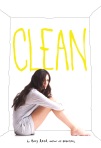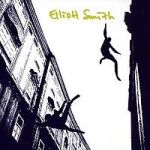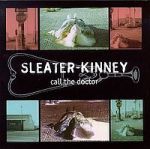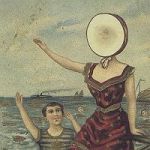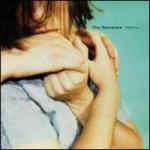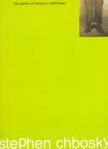I was lucky to get to go to the International Reading Association conference in Orlando this week. Highlights included an excellent shopping expedition to the outlet mall, meeting lots of amazing teachers, and eating lots of room service. I also had my own little book signing at the Simon & Schuster booth:
(Sorry the picture’s a little out of focus, but at least my hair’s cute.)
The best part of all was the amazing three-hour panel featuring four of the most exciting voices in contemporary YA. To give you an idea, here’s the title of the panel: Sex, Drugs, and Rock & Roll: Edgy YA Novels that Teens Like to Read but Make Adults Nervous. To say I was inspired would be an understatement. I was struck (as I am often struck by YA authors in general) how devoted they are to their readers, how much the lives of teens mean to them. You don’t hear this kind of stuff at an adult lit talk.
I won’t summarize the entire three hours for you, but I do want to share some of my observations and favorite quotes by the authors. DISCLAIMER: these are not direct quotes; they are my tiny hand’s attempts at scribbling what I heard as correctly as possible. So if I mangled some of their words, I am truly sorry.
Here are some highlights from the panel:
Lauren Myracle: author of many books including TTYL and the new Shine which sounds amazing)
Title: Speaking an Edgy Language that Teens Understand
- After defining ‘edgy’ as ‘new’ and ‘innovative’: “There’s nothing new about drugs and sex. Our material isn’t ‘edgy’—it’s just unsanitized.”
- On being told that she’s brave to write about difficult subject matter: “I’m not brave. Bravery is facing something you’re afraid of. Writing about this stuff doesn’t scare me. It’s our characters who are the brave ones.”
- “If I’m not trying to make a home for justice, then I’m not doing my job as a writer or a human.”
David Levithan: author of many books, including Boy Meets Boy, and co-author of Nick & Norah’s Infinite Playlist (with Rachel Cohn) and Will Grayson, Will Grayson (with John Green)
Title: Gay Love: Refusing to be Pushed Off the Edge
- First of all, he brought props—two Mickey Mouse dolls (we were in Orlando after all), which he configured in compromising positions in honor of the original title of his talk, which was changed at the last minute: Gay Sex: Refusing to be Pushed Off the Edge
- “Hiding gay sex only emboldens the people who are afraid of it.”
- “’Edgy’ is the code word for ‘the truth.’”
- He made me cry. Like a baby. I think the people around me thought I was crazy. It happened while he was reading a sex scene between two boys from his book Wide Awake. It was so beautifully and tenderly written. The characters were so much in love and in such control of their bodies. They were safe, physically and emotionally. It was not just a perfect gay sex scene, it was a perfect sex scene, period. I kept thinking of the kids who might find this book, might see this representation of what love can feel like, what sex with someone you love can feel like. I want kids to read this, queer and straight. I want this to be the kind of sex they hope for. I kept thinking about how this could be the light that gives a queer kid hope.
Gayle Forman: author of If I Stay and Where She Went
Title: Bloody Car Crashes, Out-of-Body Experiences, Steamy Sex Scenes, Angsty Rock Stars, Punk-Rock Parents, Heartbreak—It’s all catnip for teen readers. But is there anything in there for teachers?
- First of all, let me just say I plan to model myself after Mia’s “punk-rock parents” when I have a kid.
- On swearing in her books: “I write the characters as I hear them. Sometimes they curse. My mom cursed like a sailor, but then we’d go volunteer at a soup kitchen—so I never equated swearing with morality.”
Ellen Hopkins: author of Crank, Impulse, Perfect, Fallout and many more
Title: Pushing the Edge: Abuse, Drugs, Suicide and Other Difficult Issues
- Ellen is such a powerful voice in the fight against censorship. Her books have been challenged perhaps more than any other YA author. But she always perfectly articulates why she writes what she does. She explained how her book Crank puts a personal face on addiction, which is the most effective way for kids, or anyone really, to absorb info. Instead of just telling them what to do, it shows the choices and outcomes in a way readers can connect to emotionally.
- “As much as we want to scrub childhood clean, we can’t.”
- “Even the kids who aren’t going to do this stuff—they need to have empathy for the kids who do.”
- “Information won’t kill children; ignorance kills children.”
At the end of the session, a librarian asked the panel what she can do when parents or community members demand that a book be banned or removed. Ellen’s answer gave me chills, made me shed a few more tears, and made me so incredibly proud to be doing what I’m doing:
“Send them the letters we get from readers that tell us how our books saved their lives. Literally saved their lives. It’s hard to argue with that.”

